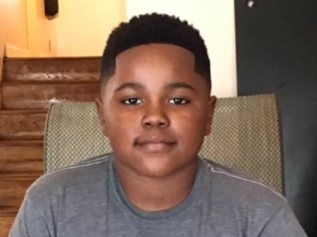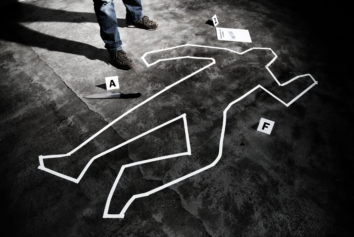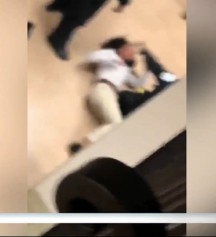
Image courtesy of Shutterstock.
A recent investigative report revealed the disturbing trend of Chicago police officers killing suspects, and then pointing the finger at their friends or accomplices.
According to the Chicago Reader, the Chicago Police Department and Cook County Sheriff’s office have charged at least 10 civilians with felony murder over the last five years. In three of those cases, officers shot into fleeing cars and later charged the surviving passengers.
The questionable practice has come under public scrutiny, especially since the police shooting of 18-year-old Paul O’Neal last month. The Chicago teen was gunned down by an officer after fleeing in a reported stolen car.
So what exactly is felony murder?
The charge has its roots in a controversial legal doctrine known as the “felony murder rule,” the Chicago Reader reports. Essentially, anyone involved in the commission of a felony can set off a series of events that may possibly lead to the death of another person. The surviving individual(s) might then be charged with felony murder.
“Although these prosecutions are sanctioned by Illinois law, these cases raise difficult questions about the law’s use and impact—especially when felony murder charges stem from situations involving possible police misconduct,” Chicago Reader’s Alison Flowers and Sarah Macaraeg explained.
According to Law.com’s legal dictionary, the felony murder doctrine also holds all involved persons accountable for the death of another — even those who’ve done zero harm, had no weapon and/or didn’t intend to hurt anyone.
“In a bizarre situation, if one of the holdup men or women is killed, his/her fellow robbers can be charged with murder,” the legal site states.
That was the exact case for Chicago teens Tevin Louis and Marquise Sampson. The Chicago Reader reports the two were childhood friends who managed to navigate through the state’s foster care system as youths. But things took a run for the worst when the pair reportedly robbed a local gyro spot for $1,250.
The two gave chase with veteran police officer Antonio Dicarlo in hot pursuit. According to the news site, the duo crossed paths with police and eventually got separated as they fled. Dicarlo soon caught up with Sampson and pumped three bullets into the teen, killing him.
“Louis didn’t arrive on the scene until after Dicarlo shot Sampson three times—in the shoulder, chest, and back,” the Chicago Reader reports. “Louis attempted to cross the police line to be at his friend’s side. He was promptly arrested for disorderly conduct and has been locked up ever since.”
Yes, Louis was charged with his friend’s murder — not the cop who pulled the trigger.
Dicarlo gave a statement to the Independent Police Review Authority, alleging that Sampson pointed a gun his direction, prompting him to shoot. The 15-year veteran has had issues with excessive force in the past and his record is dotted with at least 21 complaints of misconduct, the Chicago Reader states. He was also accused of improper use of a weapon.
However, Louis was still held responsible for the murder.
According to the publication, the Chicago teen was later found guilty of armed robbery and first-degree murder. He’s currently serving a 32-year sentence at the Lawrence Correctional Center, plus an additional 20 years for Sampson’s death.
“I cried,” Louis told the Chicago Reader as he recalled the moment he learned he was being charged for his friend’s murder “It was unreal. I didn’t know what was happening.”
“I’m not perfect,” he continued. “But I don’t deserve this.”
CPD spokesman Anthony Guglielmi sees no issue with the doctrine, asserting that it was put in place to hold criminals accountable for their actions.
“(W)hen wrong doing [sic] or intentional misconduct is discovered, CPD holds individuals accountable,” Guglielmi told Flowers and Macaraeg. “[The department’s] commitment to the highest levels of integrity and the highest levels of professional standards is unwavering.”
While the felony murder rule is supposedly used to hold criminals liable, Guyora Binder of the University at Buffalo Law School asserts that the law is often utilized when police act irresponsibly or recklessly. When that recklessness results in the death of a civilian, some officers turn to place the blame on someone else.
According to the Chicago Reader, the Cook County state’s attorney office still defends its use of the controversial doctrine, calling it appropriate and justified.
“[The state’s attorney office] does not base felony murder charges against a defendant charged with murder . . . upon irresponsible police conduct,” it said. “The murder charges are well founded under established law.”


